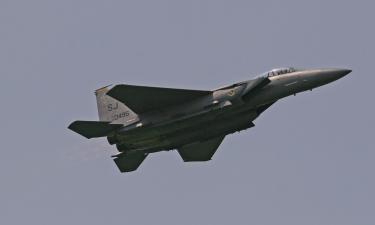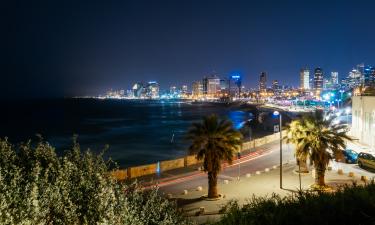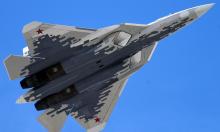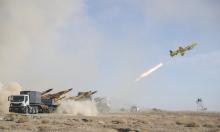The Greatest Battle of World War II Took Place 60 Years Ago
This battle became the crucial moment of the bloodiest war in history
The summer of the year 1942. It only takes one day to reach the war front on a way from Moscow. Leningrad is blocked completely, Ukraine is deserted, there is no second front at all. German troops continue their offensive. This time it happened in the southern section of a huge front, where the crucial change in the history of the Great Patriotic War happened. This unexampled battle on the Volga river took place over 60 years ago, on February 2, 1943.
Almost one million of soldiers and officers, 1260 tanks, more than 17 thousand units of arms and 1640 planes were involved in the battle. The Soviet troops had no way to retreat, the fate of the country was hanging by a thread. The People’s Committee of Defense issued order number 227, which basically looked like a cry from the heart: “It is time to stop the retreat. Not even a step back! This is what our motto is supposed to be now. We have to stand for every position, for every meter of the Soviet territory until the very last drop of blood.”
Well, Stalin could find the right words for his “brothers and sisters” when the situation got too hot. There have been a lot of books and articles written about the history of the Stalingrad battle. Let us leave all that research aside and turn to those people, who witnessed it themselves.
Here is an episode of that bloody massacre. Stalingrad, November 11th, 1942. The open-hearth furnace workshop of Red October confectionery. There were two men there: battalion commander Timofei Romashkin and Helmut Welts, another battalion commander. Romashkin wrote in his diary:
“It seems that the factory is smothered in black snowstorm. Fuel has been probably burning somewhere. There is this noise everywhere: shells, bombs, gunshots, and hundreds of other sounds. All of that went together, it pressed so much on shoulders and head. When we got used to that noise, we were really worried, if the noise suddenly stopped and there was silence in the open-hearth shop, where our battalion was hiding. It seemed that there was no time: no day, no night, no evening, no morning. That was something whole, complete. The Germans went crazy. It was their tenth attack from 6 a.m. We went to the open-hearth furnace, where the commander of our regiment, Major Mozheiko, was staying. It was twilight in the basement. However, we could see that the commander became drawn in the face. He was tired as hell. The major said that there was almost an incomplete battalion left of the whole regiment. A man, who has never known what war is, would probably put it this way: “The regiment commander said that with a sigh and with a great pain in his voice.” However, I will never be able to describe our major’s intonation. This war has not made us cold. It is very hard to write a letter to the relatives of a friend, who was just killed. Your throat goes squeezed and your eyes get stingy. All of your feelings become one – hatred. Why did they come to us? Why did they bring so much sorrow to us? I have no idea, how our lieutenant Kramzin managed to keep a bayan in those never-ending battles, because it seemed that a human being is supposed to forget about everything. I wanted to get up and yell them to stop that. But I couldn’t. Kramzin played a waltz. All of a sudden, we heard music playing from the German side. Someone played a violin there. I had a strange feeling after that. I thought that those people must be thinking of their wives and children too. A moment later I hated that violin: there was nothing spiritual about that music. It was a kind of brave and glorious music.
“The silence is gone. There is no more music anymore. Germans fire their machine guns and yell something. They attack. I give a command to fire all kinds of guns. Colonel Dmitry Bakanov, the deputy commander of our 45th division, showed up in the basement. He took off his waterproof cape, shook snow and mud off his uniform. His uniform was rather dirty, for he was crawling along a trench from the bank of the Volga, where the headquarters point of our division was. Colonel Bakanov explained the situation to us: “I understand that it is very hard for your regiment to fight now. But we can not provide reinforcement to you. It is very hard for the whole division now. The situation is very intense. Our general ordered us to keep our positions at all costs. We must not allow the enemy move forward, and we are not allowed to retreat.” Those words were absolutely not new for us. As a matter of fact, there was no use to say those words, for we knew their meaning already. Then Bakanov added that we must conduct a counter-attack: “We have to make Germans think that there are more of us here.” I have heard those things so many times before. Well, there was a limit of three shells for only one gun a day. Just one shot and infantry stands up. We did not use our defense technology for that war. We used our own men.
“We saw our sappers off at night. Pokhlebin, Motorenko, Kuryansky, Kuzminikh, Sholoh took their guns, grenades, spades and picks. The ground was covered with snow. The sappers crawled to the third workshop wearing special white uniform. The distance was only 50 meters, but it seemed like it was 50 kilometers. There was a small distance to cover in order to reach the wall. We opened a fire on the right flank so that fascists could not notice them. The sappers were digging a trench, in which they had to put tolite in. They did that and started crawling back. They lit a cord. I am supposed to signal now. I fire a flaregun. Then there was a blast, and the wall of the third workshop tumbled down. Our artillery and grenade-launching units open the fire.”
At first it may seem that there is nothing special about those records. Yet, those records described the date of November 11th, 1942. It was like the day of October 19th, 1941, when Moscow could be seized by the enemy. However, the unexampled courage of young Soviet soldiers saved the capital. The city of Stalingrad was saved by the defenders of the open-hearth shop. They fought the best that they could to destroy fascists. Captain Timofei Romashkin knew how to control a battle. He wrote in his diary:
“I am firing a green signal flare in 30 minutes, and our units will stop firing. Then I am ordering our assault groups to attack the third shop. First sergeant Kuznetsov and his platoon broke into the southern part of the workshop first. Another group rushed in from the north. Senior lieutenant Turykin and his soldiers occupied the electric power plant on the left flank. Senior lieutenant Kramzin attacks on the right. When the battle was over, I looked at the faces of the killed soldiers. I recognize some of them: Kobayev, Maslennikov, Gurykin, Grechushnikov. Grechushnikov had his eyes open, there was a still smile upon his face. I lifted his dead body and held it to my chest. He was still smiling, although he was dead.”
PRAVDA.Ru
To be continued on February 3.
Translated by Dmitry Sudakov
Subscribe to Pravda.Ru Telegram channel, Facebook, RSS!





